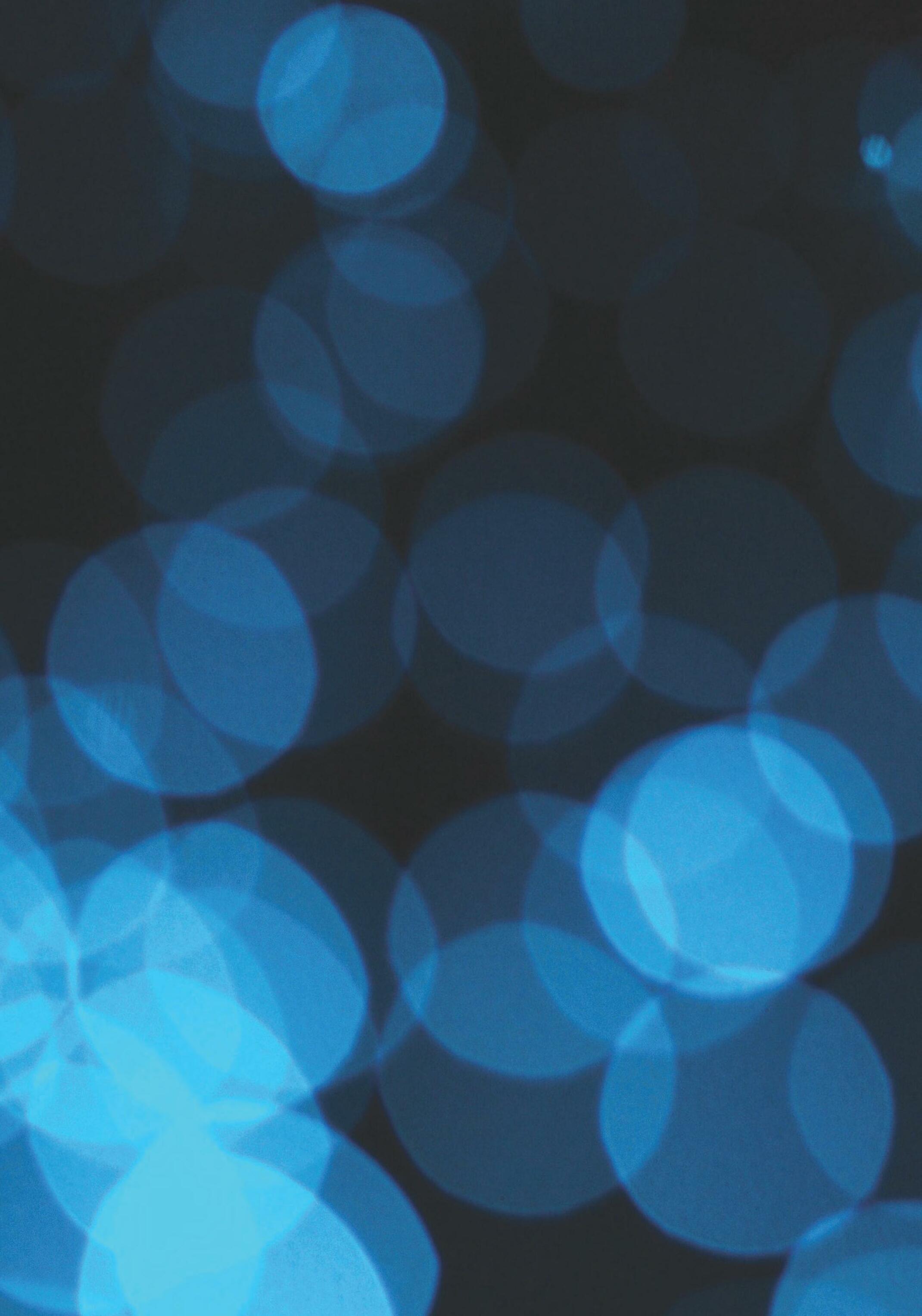






As we launch into the 2022–23 academic year, I am happy to share this overview of student success in external award competitions from the 2021–22 academic year cycle.
We already know that we have remarkable, hardworking, big-thinking students at URI, but it is gratifying to see them recognized beyond our campus. For that to happen, though, these students must take on yet another challenge by applying big. It is only by articulating their dreams and aspirations in writing, and in some cases before an interview panel, that their big goals can be supported with externally funded high-impact opportunities that bring them closer to realizing their full potential. This requires an already ambitiously busy student to take on even more, to step back and reflect, to invest in themselves, and to be open to feedback and critiques of their ideas and writing—when the chance of “winning” some of these awards is less than 5 percent. What they often do not realize until the end, is that this process itself has value, and they will reap its rewards regardless of the outcome of any given competition.

I hope you will join me in celebrating these students and alumni. I look forward to your contributions to future successes, whether that be through mentorship, recommendations, offering campus opportunities which serve as launching pads for these external awards, serving on committees, referring students to the office, or by donating to the new Donald H. DeHayes Provost Honors Excellence Endowment fund to support our most promising students.
As with most things, it takes a village. The research experiences, special programs, leadership development opportunities, and other high-impact opportunities that students have access to here on campus are what makes them such strong applicants to external awards. It all starts here, and you all play a role in these successes. Thank you!
Despite the challenges of the academic year 2021–22, not the least of which was student disengagement, the Office of National Fellowships and Academic Opportunities directly advised and guided more than 140 students in applying for awards this year, resulting in 77 winners and eight finalists/ alternates.
Through outreach, advising appointments, and information sessions, our office reached an even larger (and harder to quantify) audience, some of whom likely went on to secure great opportunities independently (e.g. National Science Foundation Research Experiences for Undergraduates program), or who will return in a future year to apply for a major award.
Other indicators of our
this year include:
Producer for the Hollings (first in nation).
Performing Institution
the Boren Awards (sixth in nation for scholars).
for mid-sized institutions over the 20 years of the Gilman Scholarship.
to collaborate with the Critical Language Scholarship program for several conference presentations as a “best practice” advisor.
than $868,500 in external funding for URI students and recent alumni.
in parentheses
award indicates that
limits the number

nominees (ranges four to 24)
an institution can put forward. Udall has two categories, environment and Native American policy/health, which are capped at four nominees each.)
Seven URI students have won Boren Scholarships. An initiative of the National Security Education Program, the David L. Boren Awards provide funding opportunities for U.S. undergraduate and graduate students to study less commonly taught languages in world regions critical to U.S. interests. Boren scholars commit to working in the federal government for at least one year after graduation.
Donegan ’24
agriculture and food systems and Chinese
Glickman ’23

studies and Chinese
Hartley ’24

science and Chinese
Gillian Hodge ’23
studies, political science, and Chinese

Suggs ’23
engineering and Japanese
Torgersen ’23
business management and Chinese Highlights
A seventh URI student was named but declined the award; two other URI students were selected as alternates for the scholarship. Five of the six are members of the Chinese Language Flagship Program and will spend their capstone year abroad in Taiwan.


final student, Kevin Suggs, an International Engineering Program student, will spend the year in Japan.
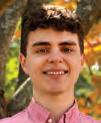

seven awardees place the University sixth in the nation for the number of 2022 Boren Award recipients.
the awards were established in 1991, URI has had 38 Boren recipients, 34 of whom were selected in the past 12 years, along with nine alternates.


The Fulbright program is the flagship international educational exchange program sponsored by the U.S. government. This year, 12 URI students and recent alumni completed applications for the Fulbright U.S. Student Program. Of that dozen, six advanced to the second stage, from which three were named as Fulbrights.
Rachel Cohn, M.A. ’23

Marine affairs, research award to Kenya
Victoria Fulfer ’16, M.S. ’18, Ph.D. ’24
Oceanography, research award to Vietnam
Lizmaylin Ramos ’20
Biological sciences, English Teaching Assistantship (ETA) to Brazil

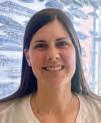

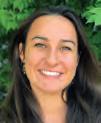
Noura Rayes ’22
Mechanical engineering for graduate study in the Netherlands
Linda Southammavong ’18, M.A. ’21 Education (TESOL/BDL) for ETA to Laos
Myles Wagner ’22
Cell and molecular biology and marine biology for graduate study in Australia
URI has had at least 42 students selected for Fulbright grants since 1959. Twenty-six of these have been in the past dozen cycles.
While our applicant pool is small, our rate of success is higher than most of the top-producing Fulbright institutions.
For the most recently available cycle (2021), out of 241 research institutions, URI comes in 25th in terms of success rate.
In terms of sheer number of awards, URI is 69th out of 205 research institutions that produced at least one awardee.
These awards are the main focus of this office at URI and students are actively assisted to seek them out.

The Barry Goldwater Scholarship program, one of the oldest and most prestigious national scholarships in the natural sciences, engineering, and mathematics in the United States, seeks to identify and support secondand third-year college students who show exceptional promise of becoming this nation’s next generation of research leaders in these fields. The characteristics the foundation seeks in a Goldwater scholar include: a strong commitment to a research career in the natural sciences, mathematics and engineering; an effective display of intellectual intensity in the sciences, mathematics and engineering; and potential for a significant future contribution to research in their chosen field.
Each year institutions may nominate up to four students for consideration.
Oliver Carey ’23
Physics and cell and molecular biology
Mary Katherine Gheyson ’23 Marine biology


Hailey Hendricks ’23 Chemistry
URI has had 24 Goldwater scholars since the program’s inception in 1989.
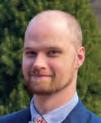
In the fall of 2021, two recent graduates were endorsed by the URI British Scholarship Committee for the Marshall Scholarship, which funds one to three years of graduate study in the United Kingdom. Following campus pre-applications, 1,190 candidates were endorsed nationwide, 163 were interviewed, and 41 were ultimately selected as Marshall scholars. Despite belonging to what is arguably the most competitive of all regions, both of URI’s candidates were selected as finalists for interviews by the Boston region.
Timothy Berard ’20
Political science and Africana studies
Alyssa Botelho ’21
Film/media and business management
Post-interview, Alyssa Botelho was named an alternate candidate for the Marshall Scholarship.
Since 2012, URI has nominated 10 candidates for the Marshall, eight of whom have been named finalists.
Of those eight, one was selected as a Marshall scholar and two others were designated as alternates.
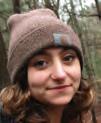
The Harry S. Truman Scholarship is the premier graduate scholarship for aspiring public service leaders in the United States. Established by Congress in 1975 as the living memorial to President Harry S. Truman and national monument to public service, the Truman Scholarship carries the legacy of our 33rd president by supporting and inspiring the next generation of public service leaders. Truman scholars demonstrate outstanding leadership potential, a commitment to a career in government or the nonprofit sector, and academic excellence. Each Truman scholar receives funding for graduate studies, leadership training, career counseling, and special internship and fellowship opportunities within the federal government.
Each year institutions may nominate up to four third-year students for this award.
Since the program’s inception, 15 URI students have been selected as Truman scholars (the most recent in 2018), and many more have been selected as finalists. In 2004, URI was named a “Truman Honor Institution” for its strong commitment to fostering future public servants.

The Udall Undergraduate Scholarship honors the legacies of Morris K. Udall and Stewart L. Udall, whose careers had a significant impact on Native American self-governance, health care, and the stewardship of public lands and natural resources. The Udall Foundation awards scholarships to second- and third-year college students for leadership, public service, and commitment to issues related to Native American nations or to the environment. Universities may nominate up to eight second- and third-year students, four whose careers will benefit Indian country and four whose careers will benefit the environment.
Marine biology
This is the most undersubscribed of our endorsed scholarships at URI. If you know of students who are a good fit or you would like to serve as a faculty representative for this award, please contact Kathleen Maher.
Chinese, international studies, political scienceHodge Sinno
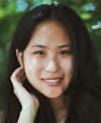

The Freeman-ASIA program is designed to support U.S.-based undergraduates with demonstrated financial need who are planning to study abroad in East or Southeast Asia. The program’s goal is to increase the number of U.S. citizens and permanent residents with firsthand exposure to and understanding of Asia and its people and cultures.
Delaney Patch ’24 Chinese, history, international studies Summer 2022, National Taiwan University, Taiwan
Hong Nguyen ’24
Biomedical engineering, Japanese-GLAS 2022–23 academic year, Waseda University, Japan
Sokpearon Lorn
Computer engineering, Japanese-GLAS Fall 2022, Niigata University, Japan
Conrad Du ’24 Chinese, chemistry 2022–23 academic year, National Yang Ming Chiao Tung University, Taiwan
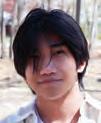

Award recipients are required to share their experiences with their home campuses or communities to encourage study abroad by others and fulfill the program’s goal of increasing understanding of Asia in the United States. This year, three URI students were awarded scholarships and two others have been designated as alternates.
Karina Lew ’23 Chinese, global business management Fall 2022, Council on International Educational Exchange, Singapore
The U.S. Department of State’s Benjamin A. Gilman International Scholarship Program enables students of limited financial means to study or intern abroad, providing them with skills critical to our national security and economic prosperity. To be eligible for the Gilman program, applicants must be receiving a Federal Pell Grant during the time of application or provide proof that they will be receiving a Pell Grant during the term of their studyabroad program or internship. This academic year, the University of Rhode
was honored as one of the top producers of Gilman scholars over the course of its 20-year history.
The Office of National Fellowships and Academic Opportunities collaborates with the Office of International Education to provide outreach, recruitment, and application support to URI applicants to the Gilman Scholarship. Since 2008, there have been more than 140 selected as Gilman scholars. This year, 15 URI students were selected. This included:
Awards for Spring 2022 Abroad
Spain (one)
Virtual (one)

Awards for 2022–23 Academic Year Abroad
Spain (three)
Taiwan (two)
Germany (two)
Japan (one)
Awards for Summer 2022
Germany (one)
Spain (one)
Taiwan (one)
Awards for Fall 2022
France (one)
Italy (one)
Gilman alumni become part of a strong network that leads them to other opportunities. This includes not only a special noncompetitive eligibility hiring status for federal employment, but also funded workshops and seminars. At least four of our Gilman alumni have later become Fulbright U.S. student awardees. Another, Nathaniel Sandoval ’21, has been selected through a competitive process to serve as a Gilman alumni ambassador.
apply for these directly, but financial aid and an education abroad advisor must certify the information post-submission.

The Coro Fellows Program develops emerging leaders to work and lead across different sectors by equipping them with knowledge, skills, and networks to accelerate positive change. Throughout the nine months, each fellow participates in a series of full-time projects across a variety of sectors in public affairs, including a final independent project of the fellow’s choosing.
Kate LeBlanc ’22
Journalism and political science
Kate was selected as a fellow to St. Louis, but ultimately declined the award.
Another U.S. Department of State initiative, the Critical Language Scholarship (CLS) provides American college students with an intensive overseas language and cultural immersion program. Students spend eight to 10 weeks abroad studying one of 15 critical languages. The program includes intensive language instruction and structured cultural enrichment experiences designed to promote rapid language gains. Since 2010, nine URI students have been selected for CLS programs.
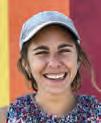
Marine affairs
Rachel was selected to participate in the Swahili program. This opportunity will precede her Fulbright term in Kenya.
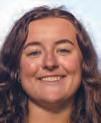
The program is highly competitive, with an average acceptance rate of about 10% each year; however, among those students who apply with guidance from the Office of National Fellowships and Academic Opportunities, more than one-third have been selected.
CLS Spark—This spring, a pilot virtual initiative called CLS Spark was launched. It is designed to “leverage best practices in online language learning developed by the CLS Program during the pandemic, providing American undergraduate students the opportunity to study critical languages virtually when they may not have access to language learning on their campuses or the ability to travel overseas.”
Five URI undergraduates submitted applications during this inaugural cycle with guidance from our office. Similar to the original summer CLS program, the rate of success nationally was less than 9 percent. We are thrilled that Devin Thomas ’23 (history) has been selected to participate in an academic year learning Russian through online classes and activities facilitated by native speakers at a CLS host institution abroad.

Beatrice S. Demers Foreign Language Fellows Program funds
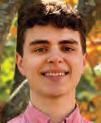








immersion experiences. Named for longtime URI Professor Beatrice Demers, who left $4 million to the Rhode Island Foundation upon her death in 2007 to ensure that her passion for foreign languages lived on, the fund is managed by the Rhode Island Foundation, which also administers the application and selection process. Preference is given to URI applicants including alumni, faculty, staff, and current students who share a passion for and commitment to language learning. This year, 28 students and one faculty member from URI were selected to receive a combined total of more than $330,000 of support.
Julia Al-Amir ’23
human development and family science
Shakiah Faris ’22
early childhood education, human development and family science
Conrad Du ’24

chemistry
Suzelle Glickman ’23
international studies
Leon Hartley ’23
computer science
Isaiah Kittel ’23
supply chain management
Karina Lew ’23
global business management
Misty Shi ’23
global business management
Torgersen ’22

global business management
Temitope Aina ’23
biomedical engineering

Daniel Bradley ’24
computer engineering
office promotes and provides guidance and support to interested applicants.Faris Lew Aina Al-Amir Kittel Shi Bradley
Dreydan Cianci ’24 French, criminology sociology
Sofia Lanzi ’24 French, mechanical engineering
Rhea Shetty ’23 French, pharmaceutical science

Samantha Adams ’24 German, physics
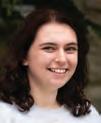



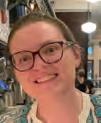
Joshua Benros ’24 German, mechanical engineering

Alek Boving ’23 German, ocean engineering
Katie Field ’24 German, mechanical engineering

Rabia Hos German, associate professor of education
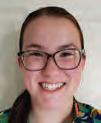
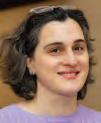
Mycarthy Newton ’24 German mechanical engineering
URI-affiliated faculty and staff who reside in Rhode Island are also eligible to apply for the award and have done so in limited numbers, but with a high rate of success.
Wilmer Chinchilla ’23 Japanese-global language and area studies [GLAS], electrical engineering


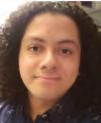
Korali Kouadio ’24 Japanese-GLAS, computer engineering

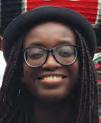
Sokpearoun Lorn ’24 Japanese-GLAS, computer engineering
Kevin Suggs ’23 Japanese-GLAS, computer engineering
Tate Blazonis ’23 Spanish, biomedical engineering
Fiona Carrez ’23 Spanish, civil engineering
Victoria Johnson ’24 Spanish, nursing
its inception in 2011, more than $2.5 million has been awarded to URI-affiliated applicants.

National Oceanic and Atmospheric Administration (NOAA)’s Ernest F. Hollings Undergraduate Scholarship aims to prepare the next generation of ocean and environmental experts to address many of the same types of issues that the late Sen. Hollings advocated for during his long career. Scholars receive a two-year academic scholarship (worth $19,000) for their third and fourth years, paid summer internship opportunities, and funding to participate in two national scientific conferences.

Matthew Brander
biology and aquaculture and fisheries science
Clements
biology
Molly Halla
Kara James
biology
Ellie Madigan
biology and wildlife conservation biology
Scipioni
biology and wildlife conservation biology


Maricarmen Serna
biology and environmental and natural resource economics
Alexandra Sinno Marine biology
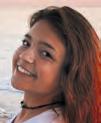

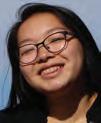
year, URI was the top producer of Hollings scholars nationally, with eight awardees.


the program’s inception in 2005, 41 URI applicants have been named scholars. This is more than any other institution in New England and places URI among the top 10 performing institutions nationally.
Each fall semester the office collaborates with Professor Jackie Webb (marine biology) to offer an information session and application workshop. Applicants are encouraged to submit multiple drafts to us for feedback before the January deadline.
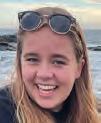
The Michael P. Metcalf Memorial Fund and the Christine T. Grinavic Adventurer’s Fund, administered together by the Rhode Island Foundation, provide support to pursue travel, non-credit study, and public service programs that will encourage personal growth and educational enrichment outside of the classroom. The program is open to college students who are Rhode Island residents. This year, three URI students applied with guidance from the Office of National Fellowships and Academic Opportunities, and all three were successful.
Civil and environmental engineering
Logan was funded to take part in the “Make Our Oceans Plastic-Free” service project in Puntarenas, Costa Rica, through the Volunteer Now Costa Rica organization.
Caleb Gross ’25
Writing and rhetoric
Caleb was funded for his project, “Working with, Learning from, and Writing About Steve Smith of Renaissance Timber LLC, and his Craft: Hewing Square Timbers from Round Logs, the Traditional Way—With an Axe.”

Film/media
Joseph was funded for his project to document and film the Gates of Hell in Turkmenistan.

The Public Policy and International Affairs Program (PPIA) is a not-for-profit organization that has been supporting efforts to increase diversity in graduate studies in public policy, international affairs, and public service for more than 40 years. It offers an assortment of rigorous academic fellowship programs for undergraduates looking to advance their careers in public service. It also offers an assortment of public service expos, conferences, and consortiums.
Psychology and data science
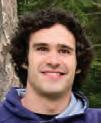
Rodrigo applied and was accepted to the Heinz College virtual public policy conference for rising third- and fourth-year students interested in public policy, public interest technology, policy analytics, and related fields, who are strongly considering graduate education and/or careers in these fields. Preference is given to students representing under-resourced communities from across the U.S. and/or working toward equity issues.
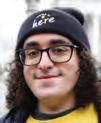
The Charles B. Rangel International Affairs Program selects fellows in a highly competitive nationwide process and supports them through two years of graduate study, internships, mentoring, and professional development activities. This program encourages applications from members of minority groups historically underrepresented in the foreign service, women, and those with financial need. Fellows who successfully complete the program and foreign service entry requirements will receive appointments as foreign service officers, in accordance with applicable law and U.S. Department of State policy.
Timothy Berard ’20
Timothy was selected as a finalist for interview and named an alternate candidate for the Rangel Fellowship. He was our first candidate for the Rangel.

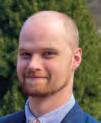
This U.S.-Japan Council’s Toshizo Watanabe Endowed Scholarship Fund provides financial assistance to undergraduate and graduate students for a semester or yearlong study abroad program in either the United States or Japan for whom study abroad would not be possible without financial support. The program also provides special opportunities to connect with council members and to hone their leadership skills. To our knowledge, this year was our first applicant to the Watanabe since its 2019 inception, and also our first recipient.
Kevin Suggs ’23*
Computer engineering and Japanese-GLAS
*Declined award due to duplicate funding
The U.S.-Japan Bridging Scholarship for Study in Japan, administered by the American Association of Teachers of Japanese, has selected two URI students are part of its fall 2022 79-student cohort:
Wilmer Chinchilla ’23
Electrical engineering and Japanese-GLAS
Kevin Suggs ’23
Computer engineering and Japanese-GLAS
Know of a great external opportunity in your field that would be a good fit for URI applicants? Send to us and we will add it to our new Fellowship Finder search tool. uri.edu/fellowships
Raymond Turrisi ’22, a 2021 Goldwater Scholar, was one of just 31 fellows selected nationwide by the engineering honor society Tau Beta Pi fellowship to support graduate studies. He was also one of 62 fellows selected nationwide by Phi Kappa Phi, the nation’s oldest and most selective collegiate honor society for all academic disciplines.
Raymond Turrisi, ’22
Mechanical engineering, computer science
Since 1912, the American-Scandinavian Foundation (ASF) has supported cultural and educational exchange between the Nordic region (Denmark, Greenland, Faroe Islands, Finland, Iceland, Norway, Sámpi, and Sweden) and the United States. ASF’s fellowships help further academic scholarship and scientific research and encourage expressions in the creative arts and music.
Megan Jones, Ph.D. ’24
Education
A 2021–22 Fulbright U.S. student grantee to Finland, Megan has been selected for the 2022–23 ASF Fellowship for Americans to continue her dissertation research examining how queer topics are or are not addressed within Finnish pre-service teacher training.
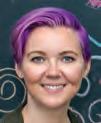
The National Science Foundation Graduate Research Fellowships Program (NSF GRFP) recognizes and supports outstanding graduate students in NSF-supported science, technology, engineering, and math disciplines who are

research-based master’s and doctoral degrees at accredited U.S. institutions. The five-year fellowship includes three years of financial support including an annual stipend of $34,000 and a cost of education allowance of $12,000 to the institution.
three URI alumni were selected for NSF Graduate Research Fellowships
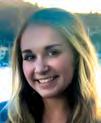

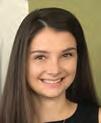
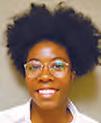
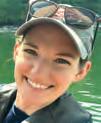
awards to support their graduate studies, as well as a current graduate student. They are:
currently a graduate student at the University of Washington.
was a 2013 NOAA Hollings scholar.
attend University of

to attend Nova Southeastern University.
was a 2019 NOAA Hollings scholar.
in many cases students learned
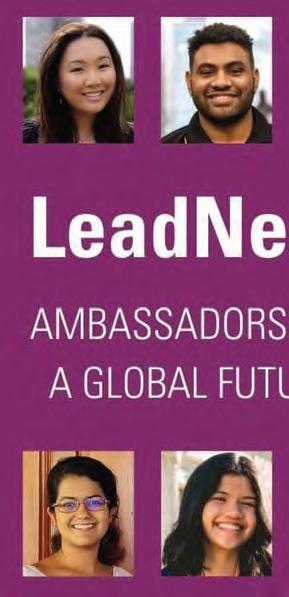
The benefits of international exchanges such as the Fulbright are enormous, but much if it is unquantifiable, intangible such as improved intercultural communication skills and a broader perspective. Sometimes, however, it is easy to see how these opportunities increase the orbits of Kingston’s shining stars before they have even finished their fellowships.

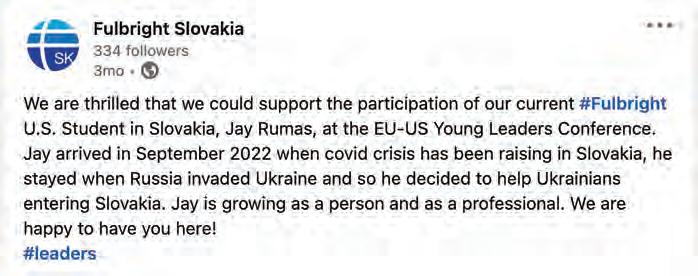
Jay spent the 2021–22 academic year in Slovakia as a Fulbright research grantee, was selected as a delegate to the EU-US Young Leaders Seminar, which brought together 25 American and 25 European scholars and civic leaders in Brussels, Belgium, to discuss the future of democracy. While in Slovakia, Jay also spent time volunteering at a shelter for refugees near the border with the Ukraine.

Eliya spent the 2021–22 academic year in South Korea as a Fulbright research grantee and was selected as a member of the Asia Foundation’s inaugural class of LeadNext Fellows: Ambassadors for a Global Future, a new program focused on global citizenship for the 21st century. The 20 fellows hail from 10 countries in the Asia-Pacific region (Bangladesh, Cambodia, India, Indonesia, Mongolia, Papua New Guinea, the Philippines, Sri Lanka, Timor-Leste, and Tonga) and 10 cities across six states in the United States (California, Illinois, Maryland, New York, Ohio, and Oregon). The LeadNext fellows are dynamic emerging leaders aged 18–25 from diverse sectors committed to addressing such issues as climate change, inequality, injustice, poverty, and other pressing concerns.
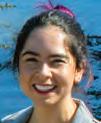
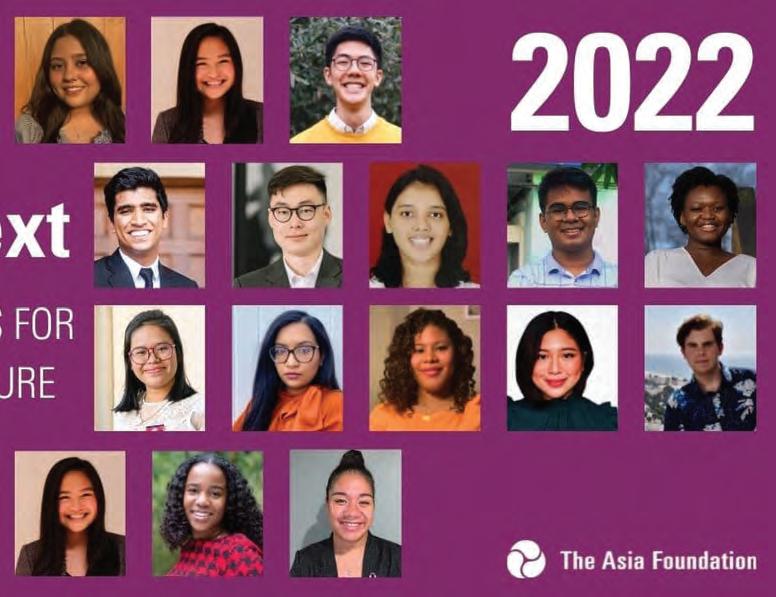
The LeadNext program brings together its first cohort of emerging changemakers, each with the potential to move ideas and action forward and empower communities most vulnerable and insecure.
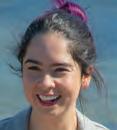
URI Rams shine brightly in the international arena as Fulbright grantees.
Eliya Baron Lopez, M.A. ’21
As a one-person office serving undergraduates and graduate students from each degree-granting college, it goes without saying that an army of volunteers is necessary to do the work well. While it would be impossible to list each one, this thank-you goes out to:
The letter-writers
The scouts
The referrals
The interview panelists
The area experts
The moral supporters
The mentors
The campus selection committee members
The faculty and staff of the Honors Program
Martin Bide
Graham Forrester Cheryl Foster Michael Greenfield David Heskett
Kristin Johnson
Perri Leviss Rod Mather Michael Rice Rachel Walshe Jacqueline WebbXioyan Hu (languages) and James Ward (history), served on national Boren selection committees (for the non-flagship scholar pool to Taiwan and for Eastern European fellows pool respectively) this year, adding more expertise to campus.
Alyssa Poey (Office of International Education and National Student Exchange) and Ai Guo Chang (Chinese Language Flagship Program) expanded their understanding of the Gilman Scholarship by serving on national selection panels.
Special thanks to Annie Babineau and Susan Jamison in Publications and Creative Services for their expertise and patience with this and other outreach projects.
Last, but certainly not least, the Office of National Fellowships and Academic Opportunities is incredibly grateful for its new collaboration with the URI Graduate Writing Center. Ph.D. candidate (BES) Felicia Page offered a Fulbright writing group for graduate students for the first time during the summer of 2021, and two of these candidates were later selected as Fulbright grantees. This summer she held a second Fulbright writing group and also offers assistance to graduate students applying to the NSF GRFP.
Thank you to the Graduate Writing Center administrative director Cara Mitnick for her continued efforts to create a culture of applications among graduate students.

